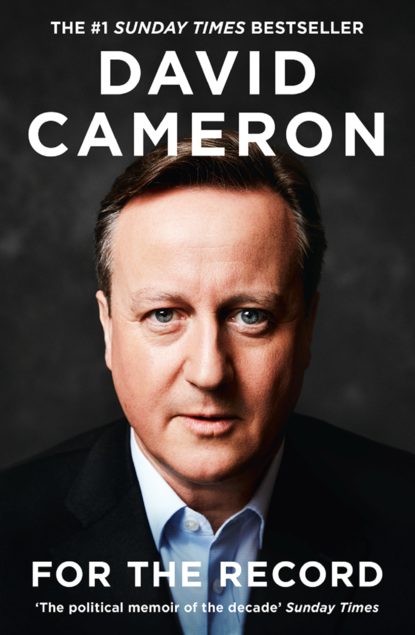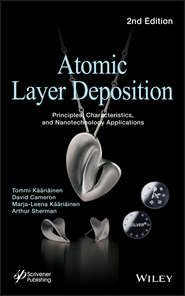По всем вопросам обращайтесь на: info@litportal.ru
(©) 2003-2024.
✖
For the Record
Настройки чтения
Размер шрифта
Высота строк
Поля
I set out the plan at the G8 in Muskoka. No cabinet meetings, no pre-briefings, no public rows between the military and civilians – just private agreement with George, William and Nick, and a statement to the press. To give a strong lead to our troops and change the tone, I knew it was one of the things that needed to be done quickly.
But I didn’t want us to leave and that be that. We were committed to financial contributions, both in terms of aid for economic development and funding for the Afghan security forces. Together with Obama, I would lead the charge at subsequent NATO summits – in Lisbon, Chicago, Cardiff and then finally Warsaw in July 2016 – to help secure similar commitments from other countries.
I knew my history. The Afghan government didn’t collapse in the 1990s when the Russians left; it collapsed when they withdrew funding for the military. The other way we could help make Afghanistan more stable beyond our military input would be by helping to foster a political agreement that brought at least some of the Taliban into the political settlement.
After all, the big mistake had happened at the beginning, back in 2001, when the West insisted on a settlement that was free of Taliban involvement – whereas my view is that true peace is only possible if it includes at least elements of the Taliban.
In many ways, of course, war suited both sides. The Afghan president Hamid Karzai and his allies could use war to favour their own tribes. The Taliban could use that fact to portray the government as tribalist and anti-Islamic. Plus, talking to the Taliban wasn’t exactly easy. (One fact illustrates this perfectly. We were being told repeatedly – right up to 2015 – that their willingness to cooperate depended on the permission of Mullah Omar, whereas we now know that Omar died in 2013.)
In the end it would have to be Afghan talking to Afghan, but we hoped that – with our strong relationship with Pakistan – we might be able to help get the ball rolling.
There was, however, a chronic lack of mutual trust between the two governments. The Pakistanis thought that the Afghans were too close to their rival, India. The Afghans thought that Pakistan was harbouring the Taliban, hedging its bets by allowing terrorists to weaken its neighbour, and still had designs on redrawing the border to unite all Pashtuns inside Pakistan.
I reasoned that one of the best ways to make progress would be to try to strengthen the personal relationships between the leaders and – where possible – include their military and intelligence chiefs in their discussions.
In opposition I had got to know Karzai quite well, and he was the first foreign leader I received at Chequers, shortly after taking office. He was charming and wily, and claimed to have a real affection for Britain. He believed that, because of our history, we had a greater understanding of the situation in Afghanistan than did the United States.
Part of my job, as I saw it, was to help focus him on making his government work and ensuring that the country was run properly, for example appointing governors, passing basic laws and dealing with rampant corruption. Karzai himself had been dogged by corruption claims in both the 2004 and 2009 elections: Hugh Powell had visited a polling station in Helmand with a turnout of three hundred which had reported 15,000 votes for Karzai.
One of the reasons some Afghans turned to the Taliban was because they seemed better at dispensing justice and ensuring order than the legitimate authorities. And corruption was so ingrained in the country’s culture that Karzai could never quite accept that we were there because we genuinely believed in the mission as part of an international coalition. In January 2012 I remember him asking me what was it – minerals? mining rights? – that we really wanted from Afghanistan.
He could be hard work. He would criticise the activities of British and American troops, even though they were making extraordinary sacrifices and were essential for his regime’s survival. And he found it too easy to play the nationalist card and blame all his problems on Pakistan.
But there was enough there for me to be able to use the relationship I had built up, and the fact that the Pakistanis trusted us more than the Americans, to help build the trust between Afghans and Pakistanis.
The high-water mark of my efforts came at the Chequers summit in 2013 when Karzai and President Asif Ali Zardari of Pakistan spent two days in talks. They slept in adjoining bedrooms, each with a guard outside sitting ramrod-straight and wide awake in his chair. I came downstairs the next morning to find the two presidents joking about which of them had been snoring the loudest.
We agreed a series of small steps to build confidence: publicly praising each other’s leadership; agreeing visits to each other’s countries; and – crucially – recognising that the security of one was the security of the other.
We aimed to move on to talk about border security and the importance of dealing with terrorist safe havens on both sides of the Durand Line (the controversial border between the two countries). We wanted to get some of their military and intelligence personnel to sit together and work together – even suggesting joint patrols. A further series of coordinated steps would then follow to help deliver a peace process: the release from Pakistani custody of potential Taliban peacemakers so they could carry out talks, hints that Afghanistan would consider constitutional reforms, and so on.
But Karzai couldn’t bring himself to trust Pakistan. Zardari was often willing, but as we know, it is really the military that makes the key decisions.
The Americans were supportive and appreciative of our efforts. They took up the cudgels for contacts with the Taliban, but ultimately the distance between the two sides, and their half-heartedness about a compromise, was too great to make meaningful progress.
This is the agenda I most wish had come off. But I am convinced that it remains crucial today, and that it can be done.
So, for all the blood spilt and treasure spent, was Britain’s involvement in the Afghan war worth it? Historians say it’s too early to say. It is incredibly depressing whenever the country slips back. Sangin is back in Taliban hands. Their flag flies over Musa Qala. Opium fields still stretch across Helmand. These are painful things to write.
But at the same time, in 2014 Afghanistan saw its first peaceful, democratic transfer of power, to the anti-corruption academic Ashraf Ghani. It now has its own police force and national army. And more than that. By 2011, 85 per cent of the country had access to basic med-ical care, compared to 9 per cent under the Taliban. Seven million more children were in school compared to one million in 2001. A third of them were girls. Not a single girl went to school in the Taliban years. As long as we go on funding the Afghan army and police (and the international community remains committed to this), the Taliban is unlikely to win the whole country, and terrorists cannot get the same foothold they had before.
The agenda is still the same. The Afghan government needs to deliver for all its people. It needs to find a way of bringing at least some elements of the Taliban into the legitimate political sphere. It will only do this if it forges a trusting partnership with Pakistan, where both accept that allowing safe havens on either side of the border for terrorists will end up destroying them both.
The difference now is that our troops are not exposed to the daily risk they once were. Arguably, it will be easier now for some sort of deal to be done because the provocative presence of foreign troops on Afghan soil is so much less.
The prevailing views are that this war was either doomed to fail or that it should have been pushed harder. I believe there is a third category, where you do the right thing and keep doing it, but it takes a very, very long time before you achieve stable and lasting success.
Samuel Beckett said, ‘Fail again. Fail better.’ Foreign troops could only ever provide a breathing space for a legitimate Afghan government to get its act together and deal with the fundamental issues.
Delivering security and some semblance of uncorrupt administration; getting the relationship between Afghanistan and Pakistan right; achieving a political settlement which demonstrates that all Afghans are welcome. I believe all these things are achievable. The story isn’t over.
Afghanistan brought me into close contact with the UK’s military chiefs. While there were robust arguments and discussions, they were generally good-natured. However, my relationship with them would come under greater strain when we had to discuss another intractable challenge: how to make sense of the UK’s defence budget in an age of austerity.
I had read widely about the history of military top brass interacting with those at the top table of government – particularly the blazing rows between Churchill and General Alan Brooke in the rooms I was now so familiar with in Downing Street. I have huge respect for the chiefs of staff who head up the army, navy, air force and the armed forces as a whole. But PMs need to build up their own expertise. Like all my predecessors since James Callaghan, I didn’t have a military background, so I decided to hire a senior military adviser to be in my private office.
Вы ознакомились с фрагментом книги.
Приобретайте полный текст книги у нашего партнера:
Приобретайте полный текст книги у нашего партнера:






